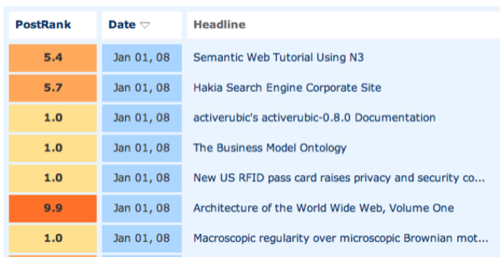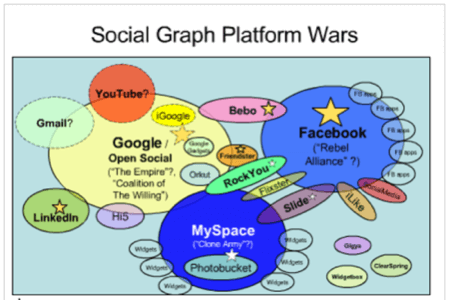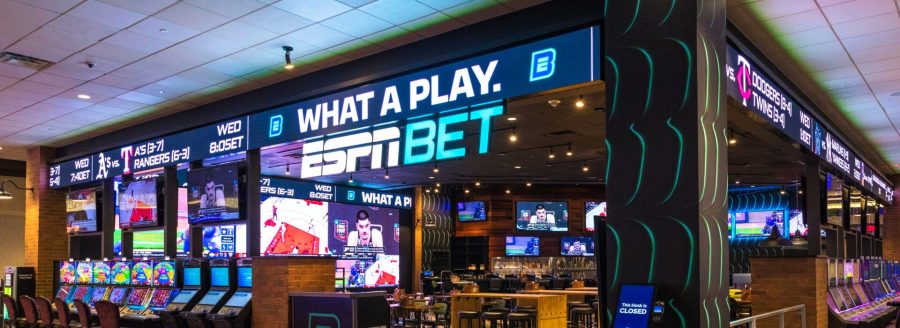Some people say that the bubble’s going to take a downturn in the next year or two – that huge numbers of copycat startups are going to shut down, people are going to be out of work and Web 2.0 cheerleaders are going to eat their (our) words.
While startup churn is inevitable in any industry (thank goodness we’re not restaurant founders!) I think this forecast is selling the future short. There are some big trends I’m really excited about for the web in 2008. Whatever happens to the economy, there’s at least a whole lot of innovation to be inspired by right now. Ultimately, I think that will end up brightening the picture for all of us around the world.
Let’s Build Some Stuff
For each of the 5 big topical trends described below, I’ve assembled some resources I think will be useful for anyone who wants to keep up with cutting edge developments in these fields in the next year.
These resources include:
* An OPML file of top blogs on each subject. This is a bundle of feeds you can import into your reader.
* A filtered RSS feed of just the most popular items regarding each topic (using AideRSS). Remember, whenever you subscribe to new RSS feeds – some of the magic won’t be visible until you mark all the initial items as read and new ones come in again.
* A Custom Search Engine that you can bookmark and use to search inside the top news and reference sites regarding each topic.
If you’d like to recommend any additional feeds or sites to add to these resources just let me know and I’ll check them out. Please do, in fact. I hardly have the energy to make these lists exhaustive by myself. That’s kind of the point of this whole web endeavor, isn’t it?
All of these resources are dynamic; sites added at a later date will be automatically delivered to everyone who subscribes to these OPML files today.

So let’s get to some trends that are shaping up to make a big impact on 2008…
Open Data
Data silos and walled gardens are a huge loss of opportunity and more people are figuring that out every day. The developments in this direction seen just in the last half of 2007 are too numerous to list here but some of the subthemes include the following.
- Data portability – taking your archives and friends from one site to another.
- The portable identity of OpenID
- The Google-led OpenSocial
- Google’s Android mobile OS
- The “by hell or high water” rise of data-centric startups
- The personal data aggregation and publishing tools called Lifestreaming apps like Tumblr, named one of Time’s Top 50 Websites of the Year, or the bleeding edge Onaswarm, Lifestrea.ms and Soup.
- The burgeoning Attention standard APML and various other efforts you can learn more about at sites like DataPortability.org.
Open Data Resources:
*RWW Open Data Feed Favorites OPML file (save link)
*RWW Open Data Feeds – Best of Feed (copy and paste to your reader)
*Preview the above feeds before subscribing (pop-up window)
*RWW Open Data Sites Search (Visit and Bookmark)
Recommendation
As is aptly demonstrated from the category above, the future is likely to be even more swamped in data, social and content options than the web is today. From Google Reader’s recent incorporation of both feed recommendations and shared items in Reader from your contacts in GMail to the ascendancy of services like Last.fm, Pandora and StumbleUpon – recommendation is beginning to make a big splash already.
Dr. Rick Hangartner, Chief Scientist at recommendation engine MyStrands, posited the following about the relationship between search engines and vendor-specific recommendation engines in a recent guest post on mobile search blog MSearchGroove:
In the near term, search engines will increasingly incorporate simple recommender technologies to handle approximate queries (e.g. You asked for this, and based on similar queries/behavior by others, you might be looking for this.). But in the long term, the recommender industry will be larger, and recommender technologies will be more pervasive than the search industry and search technology as we know it. [Because there will be recommendation going on all over the web.]
Recommendation Resources:
*RWW Recommendation Industry Feed Favorites OPML file (save link)
*RWW Recommendation Industry Feeds – Best of Feed (copy and paste to your reader)
*Click to preview the above feeds before subscribing (pop-up window)
*RWW Open Data Sites Search (Visit and Bookmark)
Semantic Web
A Semantic Web has been in the works for a long time but is just starting to hit the scene for real. The idea is that semantic web technologies are able to derive meaning from online content and determine connections where none have been made explicitly.
If I’m looking at a web page about Assata Shakur, for example, then SemWeb tech should be able to determine that she’s the subject of the page I’m looking at and that it’s a biographical page. Once that’s been determined, semantic technology can leverage the two trends discussed above (data openness and recommendation) to do all kinds of interesting things.
As I wrote in coverage of an excellent interview with Semantic Web scientist Yihong Ding – once our software is capable of deriving meaning from web pages it looks at for us, then there’s a whole lot of work that’s already been done, allowing our creative human minds to reach new heights. By pre-processing online content for us, Semantic Web technology lets us start from a point of higher abstraction.
Richard MacManus called Semantic Web application Twine possibly the first mainstream consumer semantic web app, but there’s a whole lot of innovation going on in this space. Major companies are starting to leverage Semantic Web technology under the covers of existing websites as well.
Semantic Web Resources:
*RWW Semantic Web Feed Favorites OPML file (save link)
*RWW SemWeb Feeds – Best of Feed (copy and paste to your reader)
*Click to preview the above feeds before subscribing (pop-up window)
*RWW SemWeb Sites Search (Visit and Bookmark)
Mobile
While Michael Arrington says the release of the iPhone relieved him of any pressure to build a mobile version of TechCrunch, I think there’s still going to be a whole lot of innovation in the mobile space well into the future.
Most of the people online in this world access the web through a tiny little computer they carry in their pocket and also use as a phone.
Mobile means more than just small, though. It also means portable, fast, location-aware and tied to voice, media and the meat-space.
Mobile is already a great analogy for data portability in general – people are thrilled in the US that we can now switch cell phone carriers and keep the same phone number. Imagine if we lost our contacts when we switched phones. The same type of expectations are totally reasonable for services online.
Once mobile really gets tied into open data on the web, to recommendation engines and to the semantic web – then we’ll be cooking with gas.
Mobile Industry Resources:
*RWW Mobile Feed Favorites OPML file (save link)
*RWW Mobile Feeds – Best of Feed (copy and paste to your reader)
*Click to preview the above feeds before subscribing (pop-up window)
*RWW Top Mobile Sites Search Engine (Visit and Bookmark)
Visualization
We’re only going to get so far if we just tell the world, “trust us, all this ephemeral crap is going to change your life!.” A big part of why there isn’t widespread consumer demand for OpenID is that the benefits of it haven’t been clearly communicated. The concept is gaining steam almost in spite of the communication of its advocates, many people believe. The future of OpenID and many other key technical innovations, lies in communicating with people about what they can do with the tools. That is not easy to do with things that are complicated or new.
Just as video has changed the web forever because visual communication is infinitely more evocative than text – so too do I expect the perceived value of visualization to grow by leaps and bounds in 2008.
I wrote a post about 3 methods of visualizing best practices in social software design over Thanksgiving, highlighting the work of Thomas Vander Wal, Chris Messina and the Google OpenSocial team. To that list I’d like to add Dave McClure’s SlideShare archive, where you’ll find images like the one below. This stuff is pure gold. Powerpoint is the future? Well, effective visual communication of complex data-based concepts is going to be an invaluable part of the future.

Visualization Resources:
*RWW Visualization Feed Favorites OPML file (save link)
*RWW Visualization Feeds – Best of Feed (copy and paste to your reader)
*Click to preview the above feeds before subscribing
*RWW Top Mobile Sites Search Engine (Visit and Bookmark)
That’s It! Post Suggestions Below, Please!
I hope these resources will prove useful for our readers in the coming year. Please let us know about any sites that ought to be included here – or let us know if you think I’m barking up the wrong tree and these won’t in fact be hugely influential trends in 2008. Thanks for getting all the way through this long post!





















